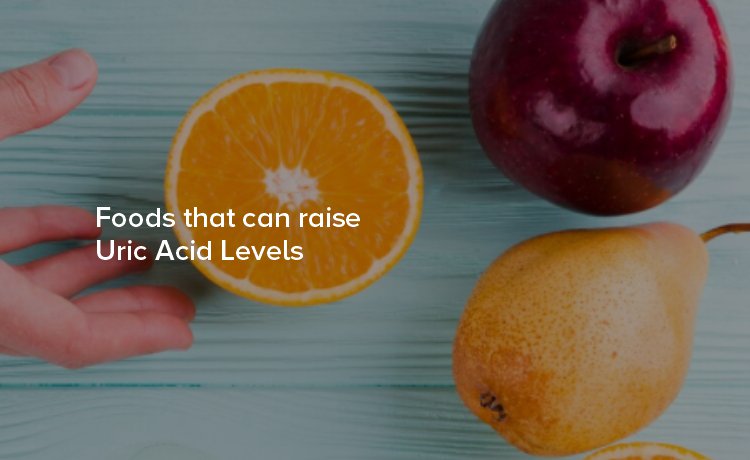
Maintaining healthy uric acid levels is vital for overall well-being. Uric acid is a natural waste product formed when the body breaks down purines—compounds found in certain foods and drinks. Normally, uric acid dissolves in the blood and is eliminated through the kidneys. However, when your body produces too much uric acid or your kidneys can’t remove enough, it accumulates in the blood. This condition is known as hyperuricemia, which can lead to gout, a painful type of arthritis, as well as kidney stones and other health issues.
Let’s explore the foods that can raise uric acid levels, understand why they affect the body, and learn how to make better dietary choices to prevent complications.
Purines are chemical compounds that occur naturally in the body and in some foods. When purines break down, uric acid is produced as a byproduct. While moderate levels are normal, high intake of purine-rich foods can cause uric acid to build up, leading to inflammation and discomfort.
To manage your health effectively, it’s important to know the high purine foods that increase uric acid and limit their consumption.
One of the biggest dietary sources of purines is animal protein, especially organ meats such as liver, kidney, and heart. These foods contain extremely high purine concentrations, which can significantly raise uric acid levels in the blood.
Even red meats such as beef, lamb, and pork should be consumed in moderation. For those already suffering from gout or hyperuricemia, replacing these with lean proteins like chicken breast or fish (low in purine) is a better choice.
Seafood is often considered a healthy source of protein and omega-3 fatty acids. However, some varieties are high purine foods that increase uric acid, especially oily and shellfish types.
While moderate consumption of fish can still be beneficial for heart health, frequent intake of purine-rich seafood can trigger gout attacks in susceptible individuals. Opt for low-purine fish like salmon or trout occasionally, but always consult your doctor or dietitian for personalized advice.
Alcohol, particularly beer, is a major contributor to elevated uric acid levels. Beer contains both purines and yeast, which intensify uric acid production. Moreover, alcohol interferes with the body’s ability to eliminate uric acid efficiently through the kidneys.
Beer and spirits are especially problematic.
Wine, while lower in purines, should also be consumed in moderation.
Frequent alcohol consumption dehydrates the body, further concentrating uric acid in the blood and triggering painful gout symptoms. Staying hydrated and limiting alcohol intake can help maintain a healthy balance.
Modern diets high in sugar-sweetened beverages and processed foods can also raise uric acid levels. Fructose, a type of sugar found in soft drinks, sweetened juices, and processed snacks, increases uric acid production during metabolism.
High-fructose corn syrup (HFCS), used in many packaged foods and drinks, is a significant culprit.
Carbonated sodas, candies, bakery items, and sugary breakfast cereals should be avoided or minimized.
Instead, choose natural beverages such as lemon water, coconut water, or herbal teas to stay hydrated and support kidney function.
While vegetables are essential for good health, a few contain moderate purine levels. Spinach, asparagus, cauliflower, and mushrooms fall into this category. However, plant-based purines are less likely to trigger gout compared to animal-based ones.
Legumes like lentils, beans, and peas also contain purines but are nutrient-dense and provide fiber and protein. Therefore, rather than eliminating them entirely, it’s best to consume them in balanced portions.
Red and processed meats not only increase purine intake but also contribute to inflammation due to high saturated fat content. Bacon, sausages, and deli meats can lead to elevated uric acid levels while negatively affecting cardiovascular health.
If you’re managing high uric acid, switch to plant-based proteins such as tofu, lentils, and chickpeas or opt for white meats like chicken and turkey in moderate amounts.
Interestingly, low-fat dairy products such as skimmed milk and yogurt can help reduce uric acid levels, while full-fat varieties might have the opposite effect. Studies suggest that casein and lactalbumin proteins in low-fat dairy promote uric acid excretion through urine.
Therefore, instead of avoiding dairy altogether, incorporate low-fat milk, yogurt, or paneer into your daily diet for balance.
Besides dietary changes, lifestyle habits also play a key role in managing uric acid.
Here are a few essential tips:
Stay hydrated: Drink at least 8–10 glasses of water daily.
Maintain a healthy weight: Obesity can increase uric acid production and reduce kidney efficiency.
Exercise regularly: Physical activity supports metabolic balance and circulation.
Avoid crash diets: Rapid weight loss can temporarily increase uric acid levels.
Limit alcohol and sugar: Both can slow uric acid removal from the body.
If you experience symptoms such as sudden joint pain (especially in the big toe), swelling, redness, or stiffness, it’s crucial to get tested for uric acid levels. Early detection and timely medical guidance can prevent long-term complications. A simple blood test or urine test can help determine whether your uric acid is within the healthy range.
At Citizens Hospitals, we believe in preventive healthcare and holistic wellness. Our expert physicians and dietitians provide personalized guidance to help you manage conditions like high uric acid and gout through balanced nutrition and lifestyle support. With advanced diagnostic facilities and patient-centric care, we ensure accurate assessments and comprehensive treatment plans tailored to your needs.
If you’re concerned about your uric acid levels or need a dietary consultation, visit Citizens Hospitals — where compassionate care meets clinical excellence.